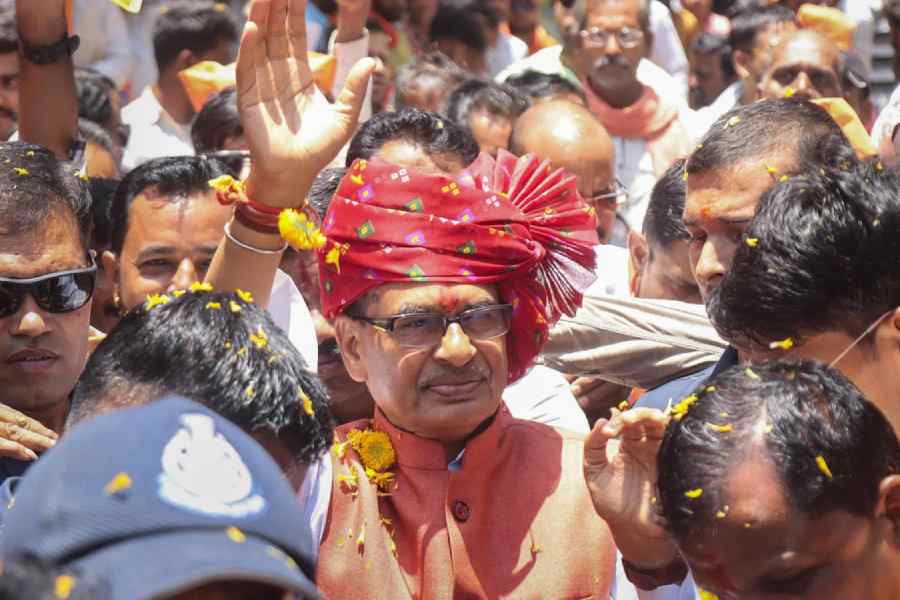The Congress, which last held power in Madhya Pradesh six years ago, had a chance this election season to capitalise on discontent over the BJP replacing popular Shivraj ‘Mamaji’ Chouhan. But that has not happened.
Madhya Pradesh’s four phases of polling came to a close on May 13. The Congress’s campaign was lacklustre and in most places, images of Prime Minister Narendra Modi dominated campaign paraphernalia.
The party, facing a funds crunch, gave a chance to several new candidates who could pay for their own campaign. As a result, scrutiny was minimal and in Indore, the party nominee withdrew and joined the BJP. In Khajuraho — allotted to INDIA ally Samajwadi Party — the candidate’s nomination papers were rejected. The Congress proceeded to support the All India Forward Bloc in Khajuraho, and asked people to vote Nota in Indore — reflecting its weak organisation that could not set up backup candidates.
“The Congress should have fought the elections like it was fighting for its existence. There was no dearth of issues. But it simply did not… However, I must say that I have not seen money play such a big role in politics in the past as this time around,” Bhopal-based political analyst Rajendra Kothari, former regional director of the PHD Chamber of Commerce and Industry, told The Telegraph.
In 2018, the Congress returned to power in Madhya Pradesh after a gap of 15 years with the support of the BSP and an Independent. Emerging as
the single-largest party, albeit two short of the majority mark, their vote share (40.89 per cent) was, however, lesser than that of the BJP’s (41.02 per cent). A few months later, the Modi brand proved stronger, as the BJP won 28 of the state’s 29 Lok Sabha seats.
In early 2020, the BJP returned to power with defectors from Congress and then got re-elected in 2023 with a higher vote share than in 2018. The Congress managed to retain its vote share.
But Chouhan’s replacement in the top chair, with little-known minister Mohan Yadav, led to widespread resentment among BJP supporters.
The Congress too was in disarray, with rumours of former chief minister Kamal Nath defecting.
Nath remained but lost his sheen as the Congress’s best performer. In his pocket borough of Chhindwara, son and incumbent MP Nakul Nath faced a tough contest against BJP rookie Vivek Sahu this year.
Of the Congress bigwigs, only former chief minister Digvijaya Singh led a valiant campaign in Rajgarh based on the Congress’ Nyay manifesto. In most places, the party was over-reliant on hyperlocal issues or the persona of the candidate, steering clear of Modi.
The BJP, unsurprisingly, put all its eggs in the Modi basket, so much so that in several constituencies that this newspaper visited, the voters did not know the local BJP candidate’s name.
Madhuri Krishnaswamy, leader of the Jagrit Adivasi Dalit Sanghatan — an NGO in the Nimar region — explained to The Telegraph: “There is a great deal of cynicism and hopelessness, and alienation of tribals from the political process, especially from the BJP. The narrative that won them earlier elections has worn thin in the last 10 years. But the Congress also has not got its act together.
“There is an enormous survival crisis, an invisible catastrophe of distress migration where a substantial population is not there to vote…. Had the Congress won the
Assembly, this would have been a fight.”











